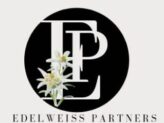Why Trademark Registration in Nigeria Matters
Registering your trademark in Nigeria gives you exclusive rights to use your brand’s name, logo, slogan, or design. Under the Trade Marks Act, it helps you protect your identity, enforce ownership, and build lasting business value. Without registration, your brand is vulnerable to imitation and legal disputes.
Benefits of Trademark Registration
- ✅ Legal ownership of your brand identity
- ✅ Protection from copycats and counterfeiters
- ✅ Right to sue infringers in court
- ✅ Boosts customer trust and goodwill
- ✅ Adds value for licensing, franchising, and business sale
What is Multi-Class Registration?
Nigeria follows the Nice Classification, which divides goods and services into 45 classes (Classes 1–34 for goods and 35–45 for services). When you register a trademark, you must specify the class it falls under.
Multi-class registration means applying for trademark protection in more than one class. For example, a business that produces drinks (Class 32) and also runs a restaurant (Class 43) should register its mark in both classes to enjoy full legal protection.
Advantages of Multi-Class Filing
- Broader legal protection across all business activities
- Prepares your brand for future expansion
- Easier to license or sell specific parts of your brand
Marks You Can Register
The Nigerian Trade Marks Act allows registration of:
- Words, names, logos, designs
- Letters and numerals
- Combinations of colors or packaging styles
Marks You Cannot Register
You cannot register marks that:
- Are deceptive or misleading
- Are scandalous or offensive
- Use common descriptive terms (e.g., “Fresh Water”)
- Use official government symbols or insignia
- Are identical or confusingly similar to existing marks
Trademark Transfer and Licensing
You can transfer ownership or allow others to use your trademark in two main ways:
1. Assignment
This means full ownership of the trademark is sold to another person or business. It must be recorded at the Trademark Registry for it to be valid against third parties.
2. Licensing
This gives someone else permission to use the trademark under certain conditions. The license must also be registered with the Registry.
3. Transmission
Trademark rights can also pass by inheritance (e.g., upon death of the owner).
Understanding Goodwill
Goodwill is the commercial value of your brand’s reputation and customer loyalty. A registered trademark protects that goodwill and gives you legal rights to stop others from misusing your brand identity. It also enhances your brand’s appeal to investors, partners, and customers.
Real Case Studies from Across Nigeria
Abeokuta Fashion Brand vs. Copycat
A fashion label in Abeokuta lost customers to a copycat in Lagos. They had no registered trademark and couldn’t enforce their rights. The result? Costly rebranding and reputational damage.
Lagos Confectionery Protects Its Expansion
A chocolate company in Lagos registered its brand in Classes 30, 29, and 32. When a new drink company used a similar name, they stopped it immediately through legal notice. Multi-class registration saved their market.
️ Port Harcourt Industrial Licensing Deal
A tools supplier from Port Harcourt licensed its trademark to partners in the North. The agreement was registered with the Registry to ensure clarity and compliance.
Calabar Cultural Group vs. Imitators
A cultural troupe from Calabar lost a court case because they didn’t register their group name. They couldn’t prove ownership or enforce their rights under the law.
️ Kano Startup Trademark Sale
A fast-growing online store in Kano sold its brand to a tech firm. The deal included official assignment of the registered trademark, making the transition smooth and legally sound.
Trademark Registration Process in Nigeria
- Conduct availability search (optional but recommended)
- File application per class with the Trademarks Registry
- Official examination of the mark
- Publication in the Trademarks Journal for 2-month opposition period
- Issuance of certificate if no objections are filed
How Long Does It Last?
A trademark lasts for 7 years initially, and can be renewed for further periods of 14 years indefinitely. If a mark is unused for 5 years, it may be cancelled on grounds of non-use.
Legal Framework
The relevant law is the Trade Marks Act Cap T13 Laws of the Federation of Nigeria 2004, supported by international treaties such as the Paris Convention and the TRIPS Agreement.
Conclusion: Protect What You’ve Built
Trademark registration is not just a legal checkbox—it’s a strategic move. It protects your brand, adds commercial value, and secures your future. Whether you operate in Lagos, Port Harcourt, Kano, or Calabar, your brand deserves to be protected from day one.
Need help registering your trademark or understanding the right classes for your brand? Contact Edelweiss Partners today for expert guidance and representation.

Oki Achika, Managing Partner
